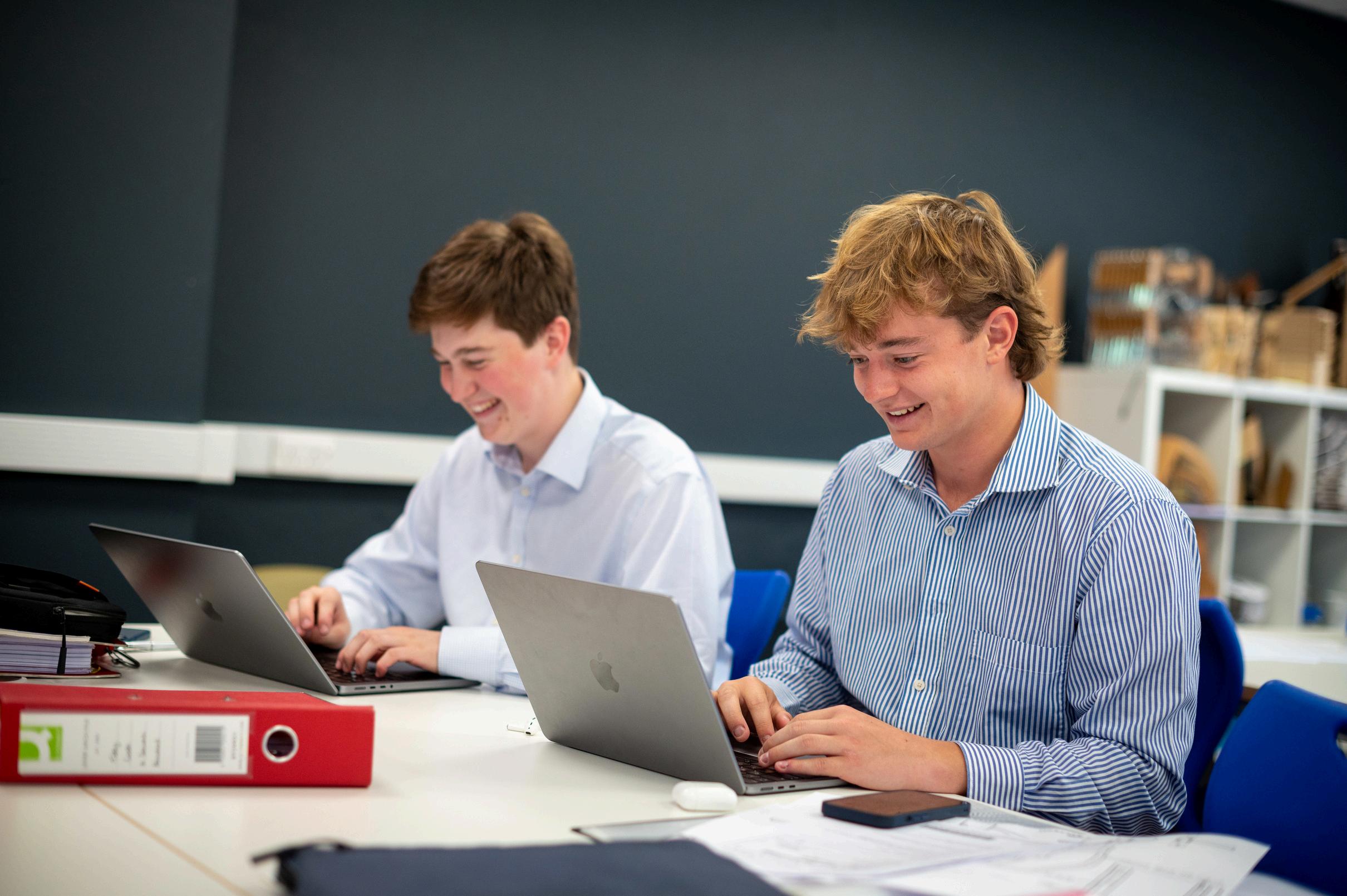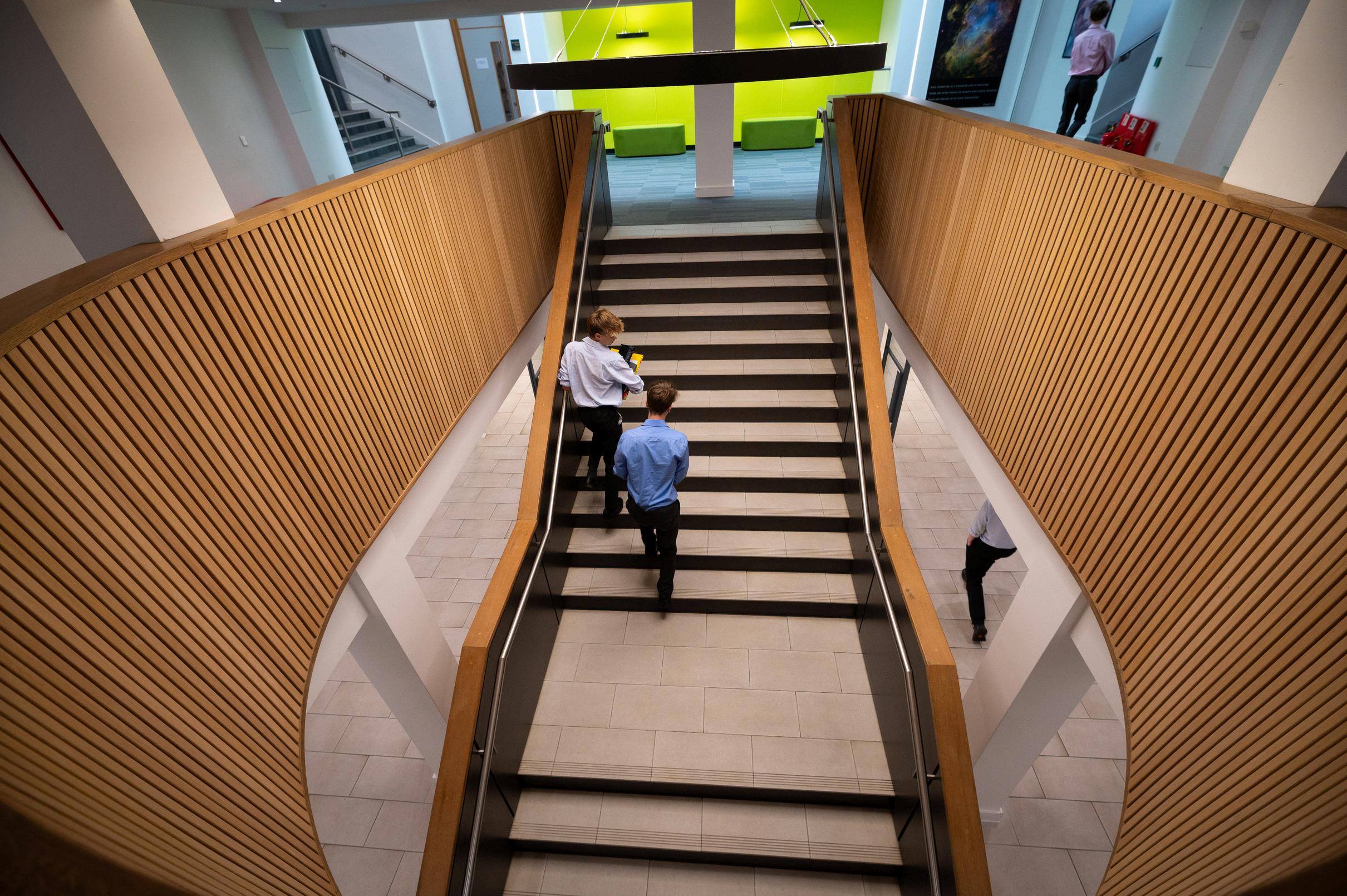









You will remember that I wrote at the end of the Summer Term about our year-long digital conversation. I am grateful to those parents who took part in focus groups and to the boys who have done the same. I have been very encouraged by the positive and thoughtful responses.
Inevitably, views varied; this is a challenging, yet important topic. We have made some changes to our digital policies that we think will make a positive difference and the attached short booklet details them as well as providing an academic perspective from the Deputy Head Academic. It also gives a quick summary of the digital content covered in the PSHE curriculum.
You will know that our conversation played out against a national discussion on the same theme. It continues to do so and we are committed to the conversation being ongoing here as well. We will continue to monitor our policies and to help and encourage boys to develop ways both to maximise benefit and mitigate risk when it comes to their digital habits. As part of that, there will be further discussion groups later in the year.
John Moule Warden


Boys may wish to consider the Forest app. Whenever a boy wants to stay focused, they plant a virtual tree. The tree will grow while they focus on their work. But if they leave the app halfway, for example to check Social Media, the tree dies. This may sound frivolous but many previous 6.2s have found it very helpful!

Lock boxes can be used as a tool to build better screen habits, reduce consumption of snacks and cravings, build better willpower leading to a happier, healthier mind and body. This one, priced at £42.99 is one of many available on Amazon.
Radley’s ‘Digital Conversation’, initiated in October 2023, has been playing out against a national conversation on the same theme. Whilst we pay close attention to this conversation, we must decide on an informed and considered approach that is right for Radley and right for Radleians.
Focus groups held with the boys in the Summer Term affirmed our belief that Radleians are, in the main, savvy about the potentially damaging and detrimental risks associated with digital dependency and abuse. However, we are not so naive as to think that boys can entirely manage their digital lives themselves or that a critical awareness of this risk is a) universal or b) a sufficient safeguard against it.
Our approach, as the Warden has previously articulated, is for boys’ access to mobile phones to move from the ‘restrictive’ to the ‘controlled permissive’ as they progress through the College. Whilst we believe that restricted access in the Shell and Remove years (and to a lesser degree, Fifth Form) provides appropriate guardrails, we also firmly believe that, through a process of education, nudge and gradated access we should arrive at the point where, when they come to leave the College, Radleians have developed the capacity for self-regulation. To that end, we have made changes to access to phones from September 2024 as follows:
Monday-Friday
Shell 7.45am - 9.15pm 7.45am - 9.15pm Post Chapel - 9.15pm
7 45am - 9 45pm 7 45am - 10pm Remove
Fifth 7.45am - 9.45pm 7.45am - 10.15pm
Sixth Form
All the time
Post Chapel - 9 45pm
Post Chapel - 9.45pm
There may be times when access to these devices will be restricted or given at a later time. This will be at the discretion of the Tutor. All boys are discouraged, when they do have access to their devices, from using them during social times such as Cocoa and during all mealtimes. Sixth Form boys have the opportunity to safely hand in their devices to their Tutor overnight and at other times (e.g. prep) as required.
We will be conducting pilots in some Socials with lock boxes and other measures that enable and encourage boys to voluntarily relinquish their devices. Crucially, we know that our boys appreciate clarity and consistency when it comes to boundaries and routines and so these revised access times will be enforced rigorously across all Socials.
We have also put links and resources below which we think you, as parents, will find informative and practically helpful when thinking about how you manage your sons’ digital activity and access whilst at home. Consistency and conversation are the guiding principles of our approach whilst the boys are at the College and the more that is the case whilst they are at home, we think, the better. Please do not hesitate to get in touch if you would like assistance getting restrictions and parental controls set up.
When boys do have access to their devices we have in place a robust filtering and monitoring process which safeguards against access to harmful and inappropriate content. Anything that goes through the school network is filtered meaning that inappropriate websites are blocked. If boys searched for inappropriate content on their College devices, this is blocked and a notification is sent to Tutors.
College devices are not able to access social media platforms (such as Instagram or Facebook) and we restrict access to streaming and gaming channels (such as Netflix or YouTube) at specific times.
The main areas that we are concerned about are the four Cs:
Content (exposure to inappropriate content, e.g. porn)
Contact (harmful online interaction)
Conduct (online behaviour)
Commerce (gambling etc)
You can read our Filtering and Monitoring Policy here.
It is of course the case that boys can circumvent our systems if they are using data and so as important as the blocks that we put in place is the safeguarding system that sits alongside it and the education that we provide via the PSHE programme about going online. Crucial to every aspect of how we approach this in the interests of the boys is the open and trusting dialogue we have with them about their digital lives.
Although we must allow time for these changes to embed we will be reviewing and adapting our approach as we support boys in navigating the digital world safely and responsibly.

Jonathan Porter, Deputy Head
The media theorist Marshall McLuhan famously argued that ‘the medium is the message’. His point was that the content of a medium (a book, TV show or live speech) will inevitably be determined by the form of media that presents it. The same is true of technology in education. Ends and means are linked, so how we teach, including the technology we choose to use, will always be connected to the quality of learning.
And technology has many forms. I can present information to my pupils by writing on a whiteboard. I can present information by writing on a piece of paper and using a visualiser (a camera above the pen and paper). I can also use a tablet to ‘cast’ the image on my screen onto the board behind me. Whichever technology I choose, my only concern as a Radley Don should be to enhance the quality of learning.
The College’s position on technology in the classroom is that each Don should choose the form of technology that leads to the best learning. For some, this will be pen and paper, because they believe that the technology is fast, reliable and the limits of the medium focus the boys on the learning at hand.
Others will combine pen and paper with visualisers so that what the Don is writing on her piece of paper can be projected onto the board behind.
For others, the iPad allows boys to write notes that can be stored digitally and then accessed wherever the boy is in the world without the fear of losing a paper booklet. Each of these approaches has advantages and disadvantages and we leave the decision about which technology to use to dons.

Beyond the classroom, different technologies afford us both advantages and disadvantages.
The ability of the boys to use their digital devices to access online learning platforms such as Quizlet, Seneca and UpLearn is significant. Apps like Quizlet and Anki are able to ‘learn’ which items of information the boys regularly forget, and so ensure that these missed items are nudged back into their attention at greater regularity.
However, the presence of phones and digital devices, at times, can be a challenge. We know that such devices are designed to encourage us to use them, and various technological features can therefore make sustaining prolonged periods of concentration, on the task in hand, even more difficult for a teenager than it is already.
The College is constantly trying to adapt its policies in this area to keep up with technology’s changing capabilities. We have different restrictions for different year groups to try and slowly develop the boys’ awareness of the role that technology plays in their lives. We want them to emerge as young men at 18 who have the nous and self-control to choose the technology that best achieves their aims

Wellbeing in the digital environment and staying safe online are key themes of our PSHE programme. It is taught throughout the year groups via lessons, assemblies and tutor periods. Delivered by Form Masters, internal IT specialists and external experts, we explore the following important themes:
Digital security and privacy
Digital literacy
Safe use of social media
Identifying and managing risk online
Accessing help
Sexting and pornography
Fake news

Parental Controls and Screentime Restrictions
Apple iPhone - Screen Time
Apple iPhone - Communication, Safety and Blocks
Android - Parental Controls for Google Play
Android - Screen Time
Android - App Permissions
Staying Safe Online
Google Digital Wellbeing
National Cyber Security Centre Tips
UK Safer Internet Centre
The Centre for Humane Technology
Childnet
Child Exploitation and Online Protection
Books
The Phone Fix by Faye Begeti
The Anxious Generation by Dr Jonathan Haidt
iGen by Dr. Jean Twenge
The Distracted Mind by Adam Gazzaley
Raising Humans in a Digital World by Diana Graber
Documentaries
Can We Live Without Our Phones? BBC Panorama
The Social Dilemma
